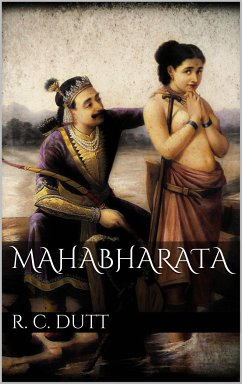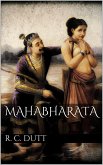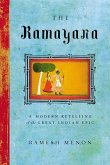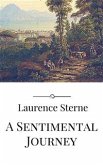Ancient India, like ancient Greece, boasts of two great Epics. One of them, the Maha-bharata, relates to a great war in which all the warlike races of Northern India took a share, and may therefore be compared to the Iliad. The other, the Ramayana, relates mainly to the adventures of its hero, banished from his country and wandering for long years in the wildernesses of Southern India, and may therefore be compared to the Odyssey. It is the first of these two Epics, the Iliad of Ancient India, which is the subject of tile foregoing pages. The great war which is the subject of this Epic is believed to have been fought in the thirteenth or fourteenth century before Christ. For generations and centuries after the war its main incidents must have been sung by bards and minstrels in the courts of Northern India. The war thus became the centre of a cycle of legends, songs, and poems in ancient India, even as Charlemagne and Arthur became the centres of legends in mediæval Europe. And then, probably under the direction of some enlightened king, the vast mass of legends and poetry, accumulated during centuries, was cast in a narrative form and formed the Epic of the Great Bharata nation, and therefore called the Maha-bharata. The real facts of the war had been obliterated by age, legendary heroes had become the principal actors, and, as is invariably the case in India, the thread of a high moral purpose, of the triumph of virtue and the subjugation of vice, was woven into the fabric of the great Epic.
Dieser Download kann aus rechtlichen Gründen nur mit Rechnungsadresse in A, B, BG, CY, CZ, D, DK, EW, E, FIN, F, GR, H, IRL, I, LT, L, LR, M, NL, PL, P, R, S, SLO, SK ausgeliefert werden.









